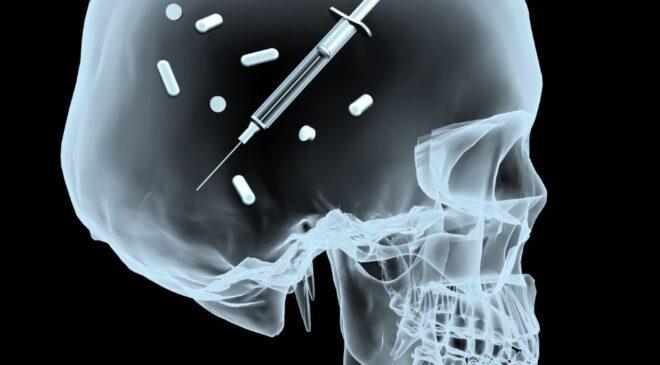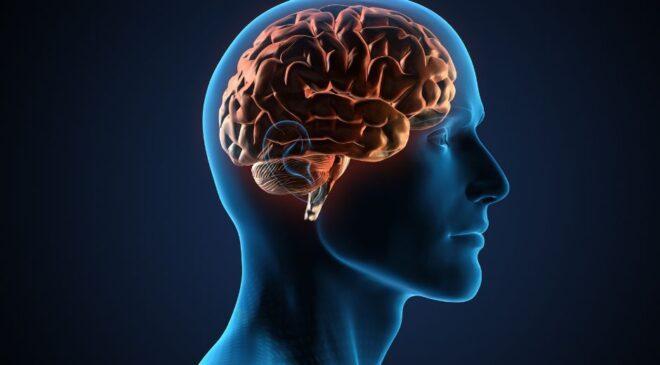Business
How Does Addiction Affect Your Brain?

Addiction profoundly alters the brain’s function and structure, leading to significant changes in behavior and decision-making. Understanding these changes is crucial to addressing addiction effectively.
In this article, we will explore how addiction affects the brain, comparing an addict’s brain to a normal brain and delving into key concepts like the brain’s reward system, the role of dopamine, and the impact on various brain regions.

Table of Contents
Key Takeaways
This article highlights the profound impact of addiction on the brain, incorporating critical insights into how various brain regions and functions are affected. It emphasizes the importance of understanding addiction from a neurological perspective to foster effective treatment and support.
- Addictive Drugs Alter the Brain’s Reward Center: Addictive substances hijack the brain’s reward system by flooding it with dopamine, a neurotransmitter associated with pleasure. This leads to significant brain changes in the dopamine system and reward pathway, making natural rewards less satisfying and driving the compulsive need to seek and use the substance.
- Addiction is a Chronic Brain Disease: Drug addiction is increasingly recognized as a chronic brain disease, not a moral failing. It involves significant changes in brain structure and function, particularly in areas like the prefrontal cortex, which are responsible for decision-making and impulse control. Understanding addiction as a brain disorder helps in developing effective treatment strategies.
- Recovery Involves Brain Adaptation and Support Systems: Despite the profound impact of addiction on the brain, recovery is possible through brain plasticity, where the brain can adapt and restore normal function over time. Effective recovery strategies often involve a combination of behavioral therapies, medications, and robust support systems to help individuals overcome withdrawal symptoms and achieve long-term sobriety.
Addict Brain vs Normal Brain
The addict brain and the normal brain differ significantly in terms of structure, function and brain activity. In a healthy brain stem, natural rewards like food, social interactions, and achievements activate the brain’s reward system, leading to the release of dopamine, a neurotransmitter associated with pleasure and satisfaction. This system helps reinforce behaviors necessary for survival and well-being.
However, in an addict’s brain, addictive drugs hijack this reward system. Substances such as alcohol, cocaine, and opioids flood the brain with dopamine, producing exaggerated feelings of euphoria. Over time, the brain adapts to these high levels of dopamine by reducing the number of dopamine receptors and diminishing their sensitivity. This adaptation leads to tolerance, where more of the substance is required to achieve the same effect, and withdrawal symptoms when the drug is not present.

Key Differences in Brain Function
- Reward System Dysregulation: In an addict’s brain, the reward system becomes hyperactive, prioritizing drug use over natural rewards.
- Prefrontal Cortex Impairment: The prefrontal cortex, responsible for decision-making and impulse control, is often weakened in individuals with addiction, leading to poor judgment and compulsive drug-seeking behaviors with adverse consequences.
- Brain Imaging Studies: Technologies like positron emission tomography (PET) scans show reduced activity and executive control in the prefrontal cortex, the cerebral cortex and altered brain activity in addicts compared to non-addicts.
Drug Addiction And Brain Disease
Drug addiction is increasingly recognized as a chronic brain disease. This perspective shifts the focus from seeing drug and alcohol addiction as a moral failing to understanding it as a medical condition that requires comprehensive treatment. The National Institute on Drug Abuse (NIDA) describes addiction as a complex brain disorder characterized by compulsive addictive substance seeking and use, despite adverse consequences.
Brain Disease Model of Addiction
- Chronic Condition: Like cardiovascular disease, substance use disorder is a long-term condition that involves cycles of relapse and remission.
- Changes in Brain Structure: Chronic addictive drug use leads to changes in brain structure, particularly in areas involved in reward, stress, and self-control.
- Impact on Neurotransmitters: Addiction disrupts the balance of the neurotransmitter dopamine, as well as other neurotransmitters, affecting the brain’s ability to communicate and function normally.
Drug Abuse And Brain Addiction
Drug abuse involves the harmful or hazardous use of a psychoactive drug, including addictive substances like opioids, stimulants, alcohol, and other drugs. Prolonged drug use can lead to brain addiction, a state where the brain’s normal functioning is overridden by the compulsive need to seek and use the substance.
How Drug Abuse Alters Brain Function
- Nucleus Accumbens: This region, part of the brain’s reward circuit, becomes hyperactive in response to drug-related cues, driving the desire for the drug users to continue repeating the addictive behavior .
- Dopamine System: Repeated exposure to addictive drugs alters the dopamine system, making natural rewards less satisfying and increasing the focus on drug use.
- Brain Circuits: Key brain circuits involved in motivation, memory, and control are disrupted, making it difficult for individuals to resist cravings and make rational decisions.
The Brain’s Reward System And Addiction
The brain’s reward system, primarily involving the nucleus accumbens and the prefrontal cortex, plays a central role in addiction. This nucleus accumbens is designed to encourage behaviors that promote survival, such as eating and socializing. However, addictive substances can hijack this system, leading to a cycle of compulsive behavior and drug seeking.
How Compulsive Drug Use Hijacks the Brain’s Pleasure Center
- Dopamine Release: Addictive drugs cause a surge in dopamine levels, creating a powerful sense of pleasure and reinforcing drug use.
- Reward Pathway: The repeated use of drugs strengthens the connections in the brain’s reward pathway, making the behavior hard to break.
- Natural Rewards: Over time, the brain’s response to natural rewards diminishes, leading to a reliance on drugs to achieve pleasure.
Understanding Withdrawal Symptoms And Recovery
Withdrawal symptoms are a significant barrier to overcoming addiction. These symptoms occur when the brain, adapted to the presence of a drug, struggles to function normally without it. Symptoms can include anxiety, depression, irritability, and physical discomfort.
Addiction Recovery and Brain Adaptation
- Brain Plasticity: The brain has the ability to adapt and change, which is crucial in recovery. With treatment and time, the brain can begin to restore normal function.
- Substance Use Disorders: Effective treatment for substance use disorders often involves a combination of behavioral therapies and medications to address both the psychological and physiological aspects of addiction.
- Support Systems: Recovery is supported by a strong social network, ongoing therapy, and, in some cases, medication-assisted treatment.
Understanding Addiction And How The Brain Responds To Taking Drugs

Understanding addiction as a brain disease rather than a moral failing is crucial for effective treatment and recovery. By recognizing how addiction affects brain function, we can better support those struggling with substance use disorders and work towards a more compassionate and scientific approach to addiction treatment. Ongoing addiction research continues to shed light on the complex interplay between brain chemicals, brain regions, and addictive behaviors, offering hope for more effective interventions and support for those on the path to recovery.

-

 Business3 years ago
Business3 years agoThe Ultimate Guide To Thriving In Your Printing Franchise
-

 Business3 years ago
Business3 years agoExploring The Benefits And Challenges Of Restaurant Franchising
-

 Business4 years ago
Business4 years agoHow to Do Long-Distance Moves with Children
-

 Tech4 years ago
Tech4 years agoCyber Table That Will Change Your Life
-

 Lifestyle3 years ago
Lifestyle3 years agoDallas’ Hidden Gems: 6 Must-Try Restaurants Off The Beaten Path!
-

 Lifestyle3 years ago
Lifestyle3 years agoTop 10 Restaurant Franchises In The US
-

 Business5 years ago
Business5 years agoIs Guest Posting a Good Inbound Marketing Strategy?
-

 Business3 years ago
Business3 years agoTop 10 Reasons You Should Invest In A Coworking Franchise















Recent Comments